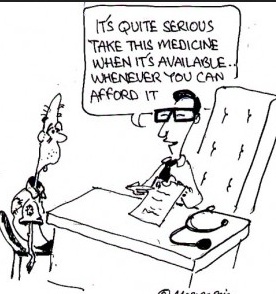Elizabeth Richardson writes: For the last several years, the US government has been negotiating a free-trade agreement known as the Trans-Pacific Partnership (TPP) with 11 other countries across the Asia-Pacific and Latin American regions, which could have major impact on the pharmaceutical market.
When finalized it will be the largest free-trade agreement in history, impacting up to one-third of world trade and roughly 40 percent of the global gross domestic product. The deal has attracted a fair share of criticism from a wide range of groups, including concerns over proposed regulations for biologic drugs in participating countries. Specifically, critics are concerned about the length of data exclusivity granted to the companies that hold the patents on these drugs. Below is a primer on biologics and how they are being addressed in the TPP.
Biologic drugs include any therapy derived from a biological source; a group which includes vaccines, anti-toxins, proteins, and monoclonal antibodies. Because they are typically much larger and more structurally complex than traditional ‘small-molecule’ drugs, they are also more difficult—and much more costly—to develop and manufacture. Biologics are also among the most expensive drugs on the market, costing an average of 22 times more than nonbiologic drugs. The recently approved hepatitis C drugs Harvoni and Sovaldi, for example, range from $63,000 to $150,000 for a full course.
Given these high costs, there is substantial interest in encouraging the development of biosimilars, a term used to describe follow-on versions of an original biologic.
After the Affordable Care Act (ACA) was passed in 2010, the US Food and Drug Administration (FDA) developed an accelerated approval pathway for biosimilars, modeled after the pathway used for the approval of small-molecule generics.
Under current FDA regulations, biologic drugs are granted 12 years of data exclusivity following approval.
For the 11 countries besides the U.S. that are involved in the TPP, current data exclusivity protections range from zero (Brunei) to eight years (Japan). Under the Obama Administration’s current proposal, participating countries would increase those periods to match the US standard of 12 years.
It is unclear whether the US will be successful in its efforts. There have been reports that the issue of data exclusivity has become a significant point of contention, and the US delegation may seek to compromise on its demands. The US Trade Representative (which is leading the US negotiations) is balancing the need to ensure adequate incentives for innovation with the need to control drug costs and facilitate patient access to potentially life-saving therapies.

